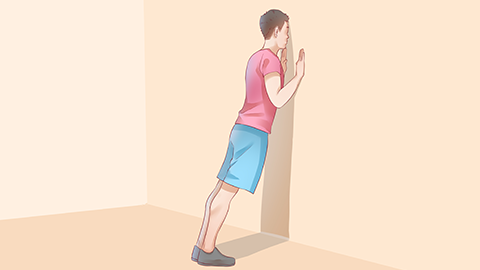What causes soreness and pain in the lower legs when climbing stairs?
Generally, leg soreness when climbing stairs may be caused by lack of warm-up before exercise, muscle fatigue buildup, calf fasciitis, lower extremity varicose veins, lumbar disc herniation, and other reasons. If discomfort occurs, it is recommended to seek timely medical evaluation and treatment at a正规 hospital. Detailed analysis is as follows:
1. Lack of Warm-up Before Exercise
Sudden stair climbing without prior muscle stretching can lead to cramp-like soreness, as muscles remain stiff. Perform a 5–10 minute warm-up before climbing stairs—such as high knees or toe raises—and massage the calf muscles afterward to promote blood circulation.

2. Muscle Fatigue Buildup
Long periods of inactivity or excessive stair climbing cause continuous muscle strain, leading to accumulation of lactic acid and resulting soreness. Reduce the intensity of stair climbing, avoid ascending too many floors at once, elevate the legs during rest, and apply heat therapy to facilitate lactic acid absorption.
3. Calf Fasciitis
Chronic overuse can cause aseptic inflammation of the calf fascia. When climbing stairs, the fascia is stretched, causing soreness. Under medical guidance, medications such as celecoxib capsules, diclofenac sodium sustained-release tablets, or eperisone hydrochloride tablets may be used. Also, minimize prolonged standing and wear loose-fitting shoes.
4. Lower Extremity Varicose Veins
Dysfunction of venous valves leads to impaired blood return. During stair climbing, increased venous pressure in the lower legs causes soreness accompanied by swelling. Medications such as micronized purified flavonoid fraction (MPFF) tablets, diosmin tablets, or calcium dobesilate capsules may be taken under medical supervision. In severe cases, surgical procedures like high ligation and stripping of the great saphenous vein may be required. Wearing medical compression stockings daily is also recommended.
5. Lumbar Disc Herniation
Herniated intervertebral discs compress nerve roots, causing radiating pain or soreness in the calf when climbing stairs due to nerve traction. Under medical guidance, medications such as mecobalamin tablets, ibuprofen sustained-release capsules, or vitamin B1 tablets may be prescribed. In severe cases, percutaneous endoscopic discectomy may be necessary. Avoid prolonged bending or sitting.
In daily life, always warm up before exercising to prevent sudden strenuous activity; control the frequency of stair climbing to avoid overexertion; wear comfortable footwear to reduce calf strain; avoid prolonged sitting or standing, and engage in regular lower limb movement; and have regular check-ups for lumbar spine and lower extremity vascular health to enable early detection and intervention.








